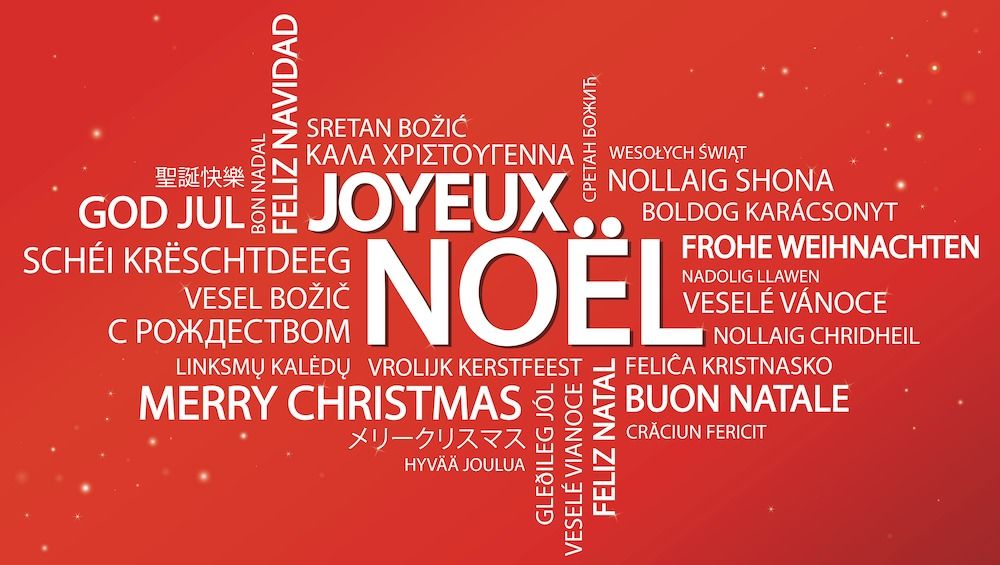Celebrating diversity at Christmas
Published on Tuesday, 26 November 2019
Last updated on Tuesday, 31 December 2019

Celebrating Christmas extends beyond the fun and fanfare of sparkly decorations, carol singing, and crafting. It's also a great opportunity to embrace the diversity within the community of children and families in your service.
New Zealand is a linguistically and culturally diverse nation made up of Maori, European, Chinese, Indian, Samoan, Filipino (and many more) ethnic groups.
This diversity in our population means that Christmas does not look the same to every child. For example a child of French heritage may celebrate St Nicholas' Day on the 6th of December and enjoy their main Christmas meal called Le Reveillon, on 24th December.
Compare this to the Tongan tradition where singing is a huge part of the holiday celebration and locals make plates of food to give to their neighbours on Christmas Day. There's also the possibility that some young children in your service don't celebrate Christmas at all.
Christmas provides a wonderful opportunity for children, families and educators to learn more about each other and be culturally inclusive. Early childhood services are the ideal location for children to experience a range of cultures and form friendships with people from a variety of backgrounds.
Multicultural learning and teaching is a foundational value expressed within the New Zealand early childhood curriculum, Te Whariki.
Te Whariki emphasises, 'the critical role of socially and culturally mediated learning and of reciprocal and responsive relationships for children with people, places, and things. Children learn through collaboration with adults and peers, through guided participation and observation of others, as well as through individual exploration and reflection.'
From a bicultural foundation, the early childhood curriculum supports the identities, languages, and cultures of all children, affirms and celebrates cultural differences, and aims to help children gain a positive awareness of their own and other cultures.
First step: 'How do you celebrate Christmas?'
Talking to families is a great starting point. Asking families what Christmas means to them and how they celebrate draws them in and informs educators.
If they don't celebrate Christmas there's a good opportunity to learn about the holidays that are equally significant in their lives and how they celebrate them. Ensuring inclusivity can encourage meaningful discussions and allows families to provide examples of their own unique traditions.
By working together, parents and teachers can plan strategies for children whose family beliefs do not permit participation in traditional New Zealand holiday celebrations. Families can take part in creating satisfactory alternatives for the child within the classroom.
Sharing different approaches to celebrations provides a real opportunity for children to think and talk about diversity. Engaging them by sharing their own experiences and traditions brings meaning and inclusivity plus it's a great time to celebrate differences.
Embracing diversity at Christmas time could include some or all of the following ideas:
Sharing
Sit children in a circle and provide an opportunity to share how they celebrate this time of year at home with their families. It's a bit like a show-and-tell. You can use this as a springboard to create ideas for classroom participation such as having a feast of different foods, or consider an art and craft hands-on fun project (see our next article).
Get parents involved
Encourage parents to bring in items or photos from their celebrations to share with the class. Parents and/or children can show the class how different items are used and why they are so special and important to their celebration.
Read books
Young children will love a selection of colourful books revealing how different cultures mark the festive season. Children may even have their own Christmas tradition book at home that they can bring in. Include books about celebrations such as Eid ul Fitr at the end of Ramadan or Diwali, the Hindu Festival of Lights.
Connect globally
You could throw an 'around-the-world' themed party, with food and activities from around the globe alongside the traditional Christmas celebration. Embrace different languages spoken by translating how they express 'Merry Christmas' and even create a poster or sing songs in different languages.
Involve the community
A wonderful way to make any major celebration more meaningful is to include your wider community. This might mean inviting guests to your classroom so they can talk about their celebrations. Reaching out to older members of the community or grandparents during this time of year can also be a wonderful experience for children.
Personal experiences
Give children an opportunity to experience and learn that not everyone celebrates holidays in the same way. Some families celebrate by focusing on religious events and traditions, while others may celebrate the holiday in more secular ways. Create opportunities for children to talk about these differences, emphasising that our individual ways of celebrating is what makes this time especially meaningful and unique for each of us.
Celebrating diversity and inclusiveness is about using cultural events such as Christmas as an opportunity to build understanding and awareness of the traditions and beliefs of others. Engaging and developing good relationships with families enables an educator to discover the beliefs and experiences that children from different cultural backgrounds bring to their early childhood centre.
Related Articles

Bilingual teachers in demand
Recent changes in government policy may result in increased demand for bilingual teachers - particularly those who can speak Te Reo Maori or Pasifika languages.

Celebrating Matariki and Māori New Year
Educational activities and fun ideas for celebrating Matariki with the children in your service.

Celebrating Diverse Families
Families have changed shape and celebrating the diversity of structures boosts inclusivesness.
